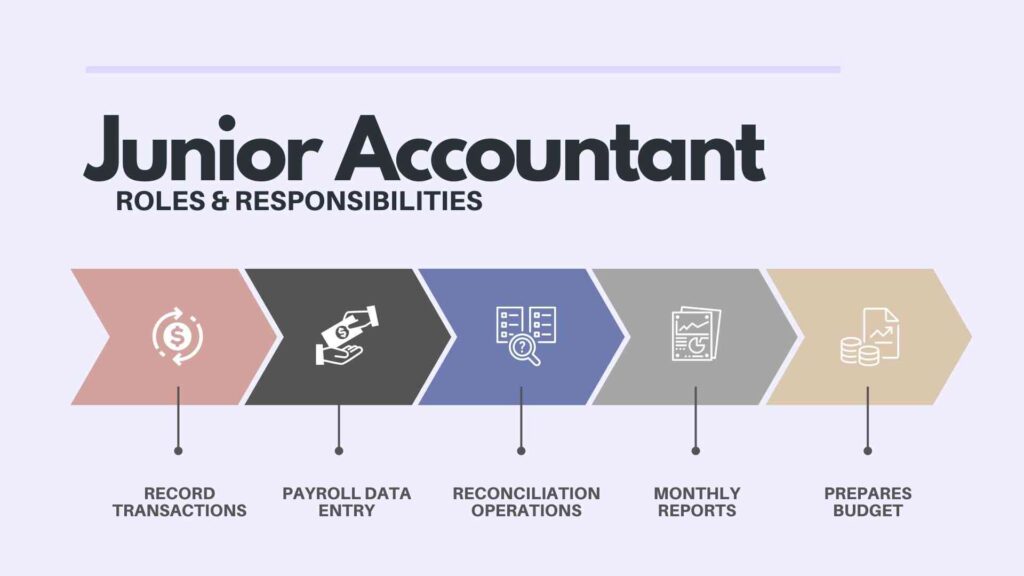Junior Accountant Jobs

Junior Accountant Jobs: A Comprehensive Guide
What Are Junior Accountant Jobs?
Definition and Role Overview
Junior accountant jobs are entry-level positions in the accounting field, designed for individuals starting their careers in finance. These roles involve assisting senior accountants with tasks such as preparing financial statements, reconciling accounts, and managing payroll.
What Does a Junior Accountant Do?
As a junior accountant, your day-to-day tasks might include recording transactions, handling invoices, and verifying financial data. You’ll also work closely with teams to ensure compliance with financial regulations.
Key Responsibilities
- Preparing journal entries
- Reconciling bank statements
- Supporting audits
- Maintaining financial records

Importance of Junior Accountant Jobs in Organizations
Junior accountants play a vital role by ensuring the accuracy of financial records, which helps organizations make informed decisions and maintain regulatory compliance.
Skills Needed for Junior Accountant Jobs
Educational Requirements
Most junior accounting positions require at least a bachelor’s degree in accounting, finance, or a related field. Certifications like CPA (Certified Public Accountant) can also enhance your prospects.
Technical Skills
- Familiarity with Accounting Software: Tools like QuickBooks and Excel are often essential.
- Knowledge of Financial Regulations: Understanding local and international accounting standards is crucial.
Soft Skills
- Communication and Teamwork: Collaborating effectively with colleagues is key.
- Attention to Detail: Ensuring accuracy in financial reports is non-negotiable.
How to Land a Junior Accountant Job
Building an Outstanding Resume
Focus on showcasing your education, internships, and any relevant certifications. Highlight your proficiency in accounting software and analytical skills.
Preparing for the Interview
Research common interview questions such as:
- “Can you describe your experience with financial reporting?”
- “How do you handle tight deadlines?”
Career Path of a Junior Accountant
Growth Opportunities
Starting as a junior accountant can lead to roles like senior accountant, financial analyst, or even CFO (Chief Financial Officer).
Salary Expectations
The average annual salary for junior accountants varies by location but typically ranges from $40,000 to $60,000.
Benefits of Being a Junior Accountant

Job Stability
Accounting is a field with consistent demand, ensuring long-term job security.
Skill Development Opportunities
You’ll gain exposure to diverse financial tasks, building a strong foundation for future roles.
Challenges in Junior Accountant Jobs
High Workload During Tax Season
Be prepared for intense deadlines and a busy schedule, especially during tax periods.
Staying Updated with Financial Regulations
The accounting field evolves constantly, requiring ongoing learning and adaptation.
Top Industries Hiring Junior Accountants
Public Accounting Firms
These firms provide excellent training grounds for budding accountants.
Private Corporations
Companies in various sectors hire junior accountants to manage their financial processes.
Non-Profit Organizations
These roles offer a chance to contribute to meaningful causes while building your career.
Remote Opportunities for Junior Accountants
Pros and Cons of Remote Work
Remote roles provide flexibility but may lack in-person collaboration opportunities.
Skills Needed for Remote Roles
Strong self-discipline, time management, and digital proficiency are essential.
Conclusion
Junior accountant jobs are a fantastic starting point for a rewarding career in finance. They offer the chance to develop critical skills, gain industry insights, and grow professionally. If you’re organized, detail-oriented, and eager to learn, this path could be the perfect fit for you.
FAQs
- What qualifications do I need to become a junior accountant?
A bachelor’s degree in accounting or finance is typically required, along with proficiency in accounting software. - Can I work as a junior accountant without a degree?
Some positions may accept relevant experience or certifications, but a degree significantly enhances your chances. - What are the common tools junior accountants use?
Popular tools include QuickBooks, Excel, and ERP systems like SAP. - How long does it take to advance in an accounting career?
With consistent performance, you can progress to senior roles within 3–5 years. - Are junior accountant jobs available remotely?
Yes, many companies offer remote opportunities, especially with the growing trend of virtual workplaces.






